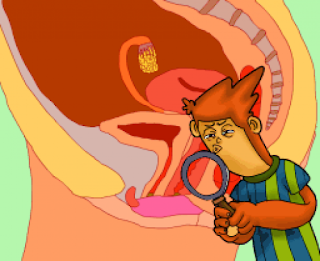What are healt and illness?
HEALTH
Good health – for children – is all about striking the right balance between healthy eating and regular physical activity.
HEATH IS:
the condition of being well or free from disease
the overall condition of someone's body or mind
ILLNESS
- A condition of being unhealthy in your body or mind.
- A specific condition that prevents your body or mind from working normally.
GAMEHealth & illness Sentence Monkey Game
DISEASES AND ILLNESSES
Infectious and noninfectious diseases
Infectious diseases, such as common colds, are caused by harmful organisms called pathogens entering our body.
Examples
Different kinds of pathogens cause different kinds of diseases. Here are
some example diseases caused by each type of pathogen:
Viruses - Viruses are extremely small and consists of DNA with a
protective coating of protein. Diseases caused by viruses include
influenza, the common cold, measles, yellow fever, and hepatitis.
Bacteria - Bacteria are small microorganisms. They can cause
diseases such as tuberculosis, cholera, typhoid fever, and tetanus.
Parasites - Parasites are organisms that live off their hosts. Some
parasitic diseases include malaria, sleeping sickness, and scabies.
Fungi - Fungi are microorganisms such as yeasts and molds. They can
cause diseases such as fungal meningitis, ringworm, and thrush.
Read more at: http://www.ducksters.com/science/biology/infectious_disease.php
This text is Copyright © Ducksters. Do not use without permission.
Read more at: http://www.ducksters.com/science/biology/infectious_disease.php
This text is Copyright © Ducksters. Do not use without permission.
Different kinds of
pathogens cause different kinds of diseases. Here are some example
diseases caused by each type of pathogen:
Viruses - Viruses are extremely small and consists of DNA with a
protective coating of protein. Diseases caused by viruses include
influenza, the common cold, measles, yellow fever, and hepatitis.
Bacteria - Bacteria are small microorganisms. They can cause
diseases such as tuberculosis, cholera, typhoid fever, and tetanus.
Parasites - Parasites are organisms that live off their hosts. Some
parasitic diseases include malaria, sleeping sickness, and scabies.
Fungi - Fungi are microorganisms such as yeasts and molds. They can
cause diseases such as fungal meningitis, ringworm, and thrush.
Read more at: http://www.ducksters.com/science/biology/infectious_disease.php
This text is Copyright © Ducksters. Do not use without permission.
Read more at: http://www.ducksters.com/science/biology/infectious_disease.php
This text is Copyright © Ducksters. Do not use without permission.
Examples
Different kinds of pathogens cause different kinds of diseases. Here are
some example diseases caused by each type of pathogen:
Viruses - Viruses are extremely small and consists of DNA with a
protective coating of protein. Diseases caused by viruses include
influenza, the common cold, measles, yellow fever, and hepatitis.
Bacteria - Bacteria are small microorganisms. They can cause
diseases such as tuberculosis, cholera, typhoid fever, and tetanus.
Parasites - Parasites are organisms that live off their hosts. Some
parasitic diseases include malaria, sleeping sickness, and scabies.
Fungi - Fungi are microorganisms such as yeasts and molds. They can
cause diseases such as fungal meningitis, ringworm, and thrush.
Read more at: http://www.ducksters.com/science/biology/infectious_disease.php
This text is Copyright © Ducksters. Do not use without permission.
Read more at: http://www.ducksters.com/science/biology/infectious_disease.php
This text is Copyright © Ducksters. Do not use without permission.
The most common pathogens are bacteria and viruses. Other microorganisms, such as some kinds of fungi and protists, can also cause diseases.
Non-infectious diseases, such as diabetes, are not caused by organisms. They are caused by different factors and cannot be spread from person to person.
A healthy lifestyle helps prevent diseases. This includes a healthy diet, exercise, regular check-ups, and saying no to drugs and alcohol and an excessive use of video games.
GAME
SNEECE
TIP TO STAY HEALTHY
ADVANCES IN MEDICINE















































